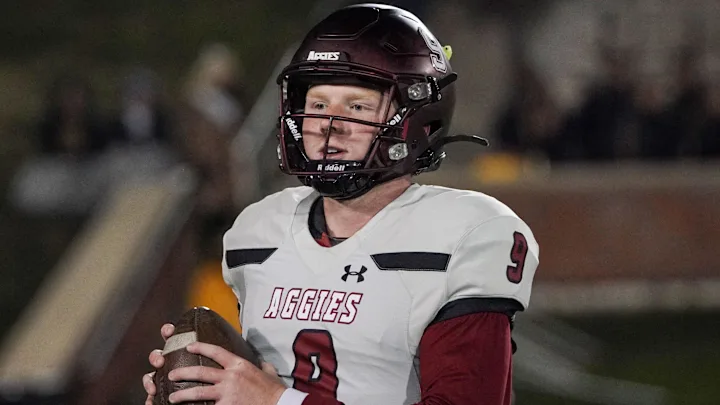Gavin Frakes Transfers to Northwestern After Oklahoma Commitment: A New Chapter for the Promising Quarterback
The college football landscape is ever-evolving, with player transfers becoming an increasingly common occurrence as athletes seek the best opportunities to develop their skills and showcase their talents. One such notable move is quarterback Gavin Frakes’ decision to transfer to Northwestern University after initially committing to the University of Oklahoma. This shift marks a significant turning point in Frakes’ young career, raising questions about his motivations, the implications for both programs, and what this means for his future in the sport.
Gavin Frakes, a talented quarterback from California, has long been regarded as a promising prospect in the world of college football. Standing at 6’4” with a strong arm, excellent pocket presence, and the ability to make plays under pressure, Frakes quickly garnered attention from top-tier programs during his high school career. His ability to read defenses, deliver accurate throws, and extend plays with his mobility made him a coveted recruit.
Initially, Frakes committed to Oklahoma, a program with a storied history of developing elite quarterbacks under the guidance of head coach Brent Venables and offensive coordinator Jeff Lebby. The Sooners’ high-powered offense and track record of sending quarterbacks to the NFL—including Baker Mayfield, Kyler Murray, and Jalen Hurts—made Oklahoma an attractive destination for any young signal-caller. However, despite the prestige of the program, Frakes ultimately decided that his future lay elsewhere.
Frakes’ arrival is a major win for Northwestern’s football program. The Wildcats have struggled with consistency at the quarterback position in recent years, and adding a player of Frakes’ caliber could be a game-changer. His arm talent, football IQ, and leadership qualities make him a potential cornerstone for the team’s future.
If Frakes can adapt quickly to the college game, he could help elevate Northwestern’s offense, providing the stability needed to compete in the Big Ten. The conference is known for its physical defenses, but a quarterback with Frakes’ poise and playmaking ability could give the Wildcats an edge in close games.
Additionally, landing a recruit originally committed to a powerhouse like Oklahoma sends a strong message about Northwestern’s growing appeal. In an era where the transfer portal has leveled the playing field, the Wildcats’ ability to attract high-profile talent could signal a shift in the program’s trajectory.
For Oklahoma, losing a commit of Frakes’ stature is never ideal, but the Sooners are no strangers to elite quarterback recruitment. With a deep roster of talented passers, the program is well-equipped to move forward. However, Frakes’ departure does raise questions about whether Oklahoma’s intense competition at the position could deter other high-level recruits in the future.
The Sooners will likely continue to pursue top-tier quarterbacks, but they may need to reassess how they manage their depth chart to avoid similar situations. In the modern era of college football, where player mobility is at an all-time high, maintaining a balance between competition and player retention is crucial.
Frakes’ move is emblematic of a larger trend in college football—players are no longer bound by their initial commitments. The transfer portal has empowered athletes to seek better opportunities, whether for playing time, development, or personal reasons. While this has led to increased player freedom, it has also created a more volatile recruiting landscape where programs must constantly adapt.
For coaches, the challenge is now two-fold: not only must they recruit high school talent, but they must also manage their roster to prevent attrition. For players like Frakes, the portal provides a second chance to find the right fit, ensuring that their collegiate careers align with their aspirations.
As Frakes prepares to join Northwestern, the focus will shift to how quickly he can acclimate to his new team. Will he compete for the starting job immediately, or will he spend a year developing behind an established quarterback? How will he handle the transition from high school to the rigors of Big Ten football?
One thing is certain: Frakes has the tools to succeed. His physical attributes, combined with his football intelligence, give him a high ceiling. If he can harness his potential under Northwestern’s coaching staff, he could emerge as one of the conference’s standout quarterbacks in the coming years.
Gavin Frakes’ transfer to Northwestern after decommitting from Oklahoma is a fascinating case study in modern college football recruitment. It highlights the increasing fluidity of player movement, the importance of finding the right program fit, and the ever-present balancing act between competition and development.
For Northwestern, this is an opportunity to build around a talented young quarterback. For Oklahoma, it’s a reminder of the challenges of maintaining a stacked roster. And for Frakes, it’s the beginning of a new chapter—one that could define his career.
As the 2024 season approaches, all eyes will be on Evanston to see if this transfer proves to be the catalyst for a new era of Wildcats football. One thing is for sure: Gavin Frakes’ journey is just getting started.



